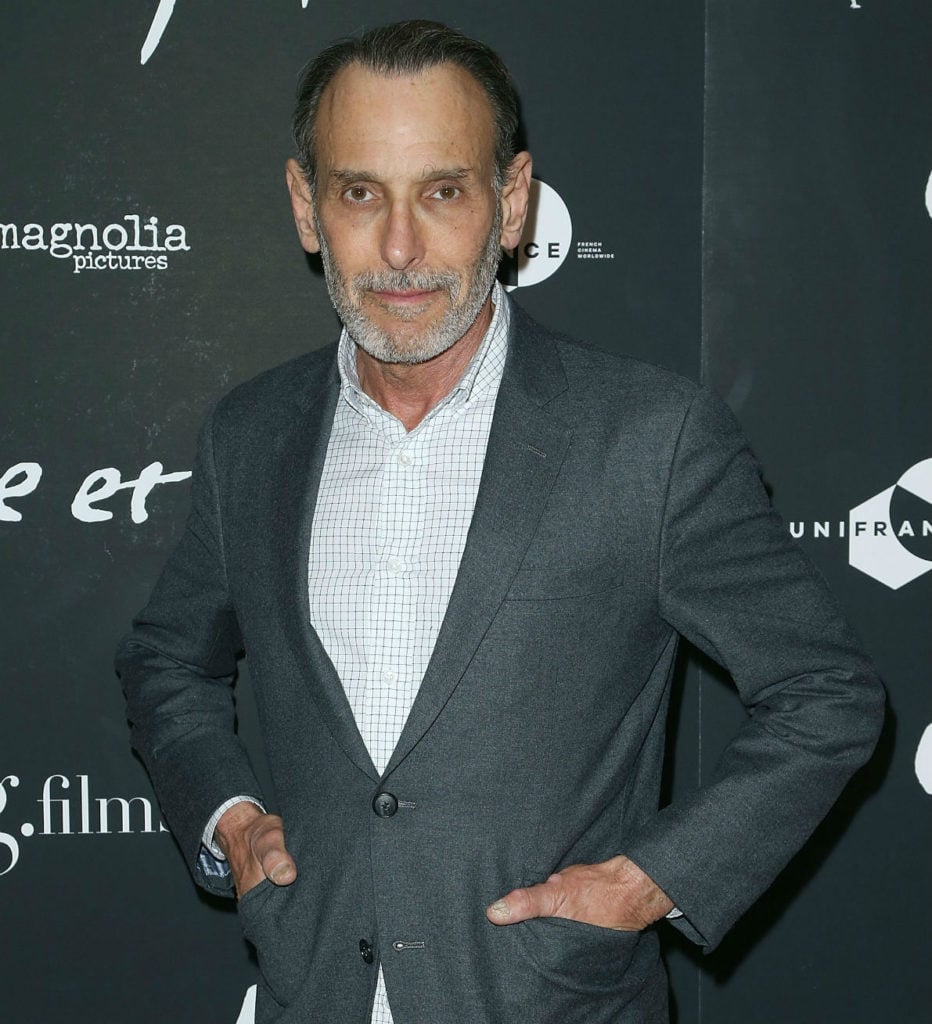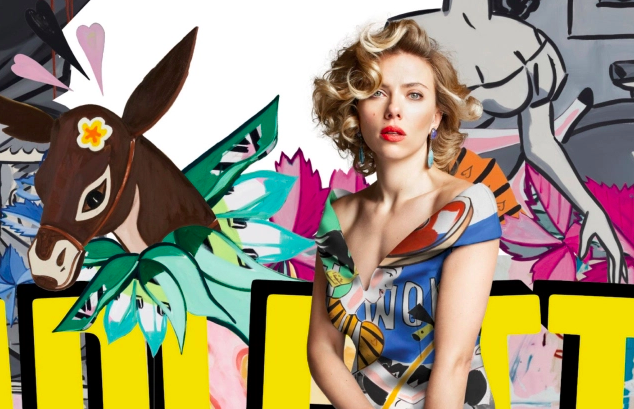People
Scarlett Johansson Told the Painter David Salle That Art ‘Should Be Immune to Political Correctness’—and a Firestorm Ensued
The actress has been widely criticized for saying that she "should be allowed to play any person."

The artist David Salle recently directed a magazine shoot and interview with Scarlett Johansson that didn’t go so well for the actress.
For the feature in AS IF Magazine, Johansson appears among Salle’s painted imagery, drawn from his latest body of work on view at Skarstedt in London, which reimagines cartoons from the 1940s and ‘50s in a melange of painterly post-war American imagery: White businessmen come home to their dolled-up, stay-at-home wives; cars and cleaning appliances float around in a consumerist fever dream; everyone is happy.
She also sat down with Salle for a long interview that touched on everything from costumes to identity politics in Hollywood. Johansson’s comments on the latter topic didn’t sit well with some.
“Today there’s a lot of emphasis and conversation about what acting is and who we want to see represent ourselves on screen,” she told Salle in the interview. “You know, as an actor I should be allowed to play any person, or any tree, or any animal because that is my job and the requirements of my job.”
Shortly after the story was published online, it went viral and the internet took the actress to task for her remarks—and created many a meme in the process. Comedian Trevor Noah dedicated a segment to criticizing her on a recent episode of the Daily Show.
Johansson issued an apology the next day, saying that her quotes were “widely taken out of context” and “edited for clickbait.”
“The question I was answering in my conversation with the contemporary artist, David Salle, was about the confrontation between political correctness and art,” she said in a statement. “I personally feel that, in an ideal world, any actor should be able to play anybody and Art, in all forms, should be immune to political correctness.”
She added: “I recognize that in reality, there is a widespread discrepancy amongst my industry that favors Caucasian, cisgendered actors and that not every actor has been given the same opportunities that I have been privileged to. I continue to support, and always have, diversity in every industry and will continue to fight for projects where everyone is included.”
Johansson has been at the center of the Hollywood representation debate before. In 2017, the actress was criticized for playing an Asian character in the adaptation of the Japanese manga series Ghost in the Shell. A year later, she was cast to play real-life trans man Dante Tex Gill in the film Rub & Tugbefore dropping out of the project amid controversy.
Salle had his own thoughts on the cultural moment—in fact, for long sections, the interview reads more as if the actress were interviewing him than the other way around. “We’re seeing a pendulum swing,” he said. “The pendulum had gone way too far in one direction, and now it’s swinging the other way. We all agree it had to swing; the question now is how far it has to go in the other direction, and how long it will it take to reach a point of equilibrium.”

David Salle. Photo courtesy Patrick McMullan/PatrickMcMullan.com.
A beat later, the painter added: “Personally, I feel that reactions to certain things in the arts have almost reached a level of mass hysteria, and the criteria by which certain works are being judged are pretty whacky, and yet those reactions seem justified to people of a certain generation. In the visual arts there’s an almost oedipal drive to get rid of the people above you, to elbow them out of your way. And that’s ongoing. I’m not a sociologist, but I think one aspect of the present mood is just the desire to get rid of people who are perceived as having been around too long.”
“Hmm, that’s interesting,” Johansson replied.
Follow artnet News on Facebook:
Want to stay ahead of the art world? Subscribe to our newsletter to get the breaking news, eye-opening interviews, and incisive critical takes that drive the conversation forward.

SHARE
Article topics



No comments:
Post a Comment